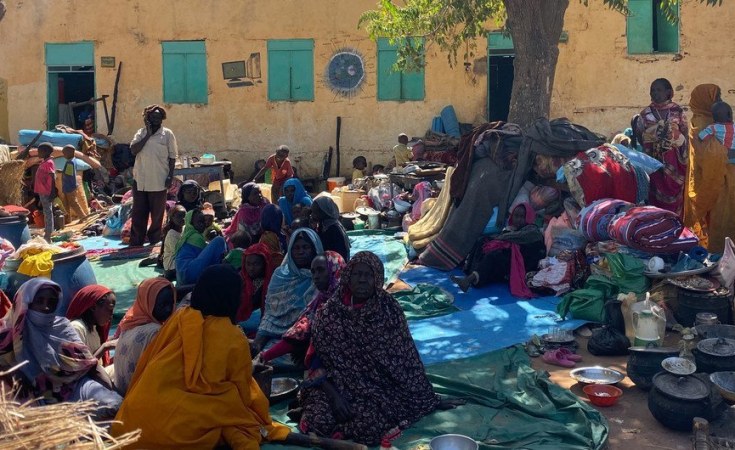N'djamena / New York / Geneva — Chad is grappling with an overwhelming surge of Sudanese refugees after violence escalated in Darfur in the past two months. UNICEF anticipates thousands more seeking safety in Chad, despite the desperate conditions along the border. Reports of inaccessibility of aid and distribution challenges further compound the crisis.
In a press statement on Monday, the United Nations Children's Fund (UNICEF) reports a staggering influx of refugees into eastern Chad, one of the poorest regions of the country. As of June 23, about 140,000 Sudanese refugees and 34,000 Chadian returnees have crossed the border. More than 90 per cent of the refugees are women and children.
New arrivals in Chad share harrowing accounts of fleeing from burning villages and witnessing attacks on others. Many refugees have been injured or tragically lost loved ones during their escape. Numerous children were separated from their families.
"The atrocities witnessed by children and families in Sudan are fast becoming a serious crisis in Chad. Resources to help children and families are running out," said Jacques Boyer, UNICEF Representative in Chad.
Boyer stressed the need for immediate assistance to mitigate the impact of this crisis that "is unfolding before our eyes". Currently, a mere 10 per cent of the required $25 million for crisis response efforts in Chad has been raised.
Aid access 'nearly impossible'
In a briefing note published yesterday, the UN refugee agency (UNHCR) expresses growing concern about the escalating humanitarian needs in Sudan and neighbouring countries.
The number of displaced people within the country continues to rise, but the delivery of assistance remains severely hampered. Insecurity, limited access to affected areas, and insufficient funding pose significant challenges.
Access restrictions hinder UNHCR teams from reaching affected areas, impeding the provision of vital resources and services to vulnerable civilians. The situation in West Darfur has reached critical levels, making the delivery of life-saving aid nearly impossible.
The sheer volume of people crossing into neighbouring countries overwhelms reception and border facilities. Overcrowding and the depletion of limited resources become pressing concerns.
To date, 26,000 refugees out of the 120,000 in Chad have been relocated from the border region to camps.
"Those fleeing Sudan endure exhaustion after spending days or even weeks on the road", UNHCR states. They are traumatised by the violence they have witnessed and urgently need food, medical care, and relief supplies.
The arrival of aid is further complicated by the onset of rains.
This is also the case in South Sudan, where many South Sudanese returnees as well as Sudanese refugees sought refuge. Limited infrastructure and security concerns pose additional challenges. Much-needed assistance often requires significant air transportation.
Yesterday, Radio Dabanga reported about aid items that arrived in White Nile state two months ago but "have yet to be distributed".


